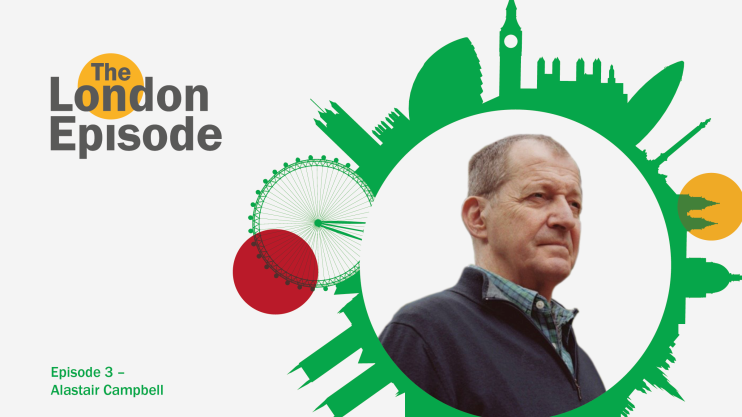
Alastair Campbell on seeing a person’s value, not just their mental illness

During his London Episode session, mental health campaigner Alastair Campbell called on CAs to use their influence to put mental wellbeing at the heart of business.
One of the main divers for Alastair Campbell’s focus on mental health campaigning was his late brother Donald, who was diagnosed with schizophrenia.
“Donald held down the same job at Glasgow University for 27 years because they never defined him as a schizophrenic,” said Alastair.
“They defined him as somebody of value to [them] who has schizophrenia.”
This is a lesson that Alastair said employers today should take to heart during their hiring process. Instead of being wary of a candidate who discloses a mental illness, he believes that employers should recognise that person’s honesty and resilience, and they should be embraced for the value they can bring.
Alastair described his experiences with his mental wellbeing by sharing details about his hospitalisation following a psychotic breakdown in 1986. He defined this experience as “one of the best things that ever happened to me,” as it allowed him to confront the fact that he was depressed and was self-medicating with alcohol.
“I learnt who and what was important,” explained Alastair.
“I got my career back on track and a year later the first of our three children was born.”
After this, Alastair was able to get a handle on his alcohol addiction and said that he is now focusing that obsessive energy on healthier and creative activities.
Although he had made progress with his mental wellbeing following his hospitalisation in the 80s, Alastair said that he only started to become open with himself in 2005.
An instance of self-harming brought a realisation that he needed to seek out help and he started to see a psychiatrist. This set him on a path towards a better place with his mental health. He then went on to write the book Living Better, in which he detailed how he worked on his mental wellbeing.
It was during an interview with a psychiatrist for his book that Alastair was introduced to an original way of working on his mental wellbeing that he can apply when he feels he’s beginning to fall into a depressive state.
“I use a jam jar,” said Alastair.
He explained that at the bottom of a jam jar sits sediment, which in this context is a person’s genes, their genetic make-up and something that can’t be changed. On top of this sits a person’s life up to that point. As we move through life, having billions of thoughts and experiences, the jam jar can overflow and the lid can pop off.
To avoid this happening, Alastair said, the key is to “grow your jam jar”. An individual should make as much space as needed for the things that matter to them, to avoid thoughts of being overwhelmed or stressed.
Being able to gain perspective on the things that matter to him most, such as his family, Alastair has been able to come out of his depressive states much quicker than before he had his jam jar.
“It’s really about pulling back and asking what you can do for yourself and for others.”
Speaking directly to CAs, Alastair put to them that they are in a privileged position and hold a fundamental role within their organisations to push for progress in the acceptance of mental health and wellbeing in the workplace.
“Don’t just make it a box-ticking exercise. Understand it’s fundamental.”
